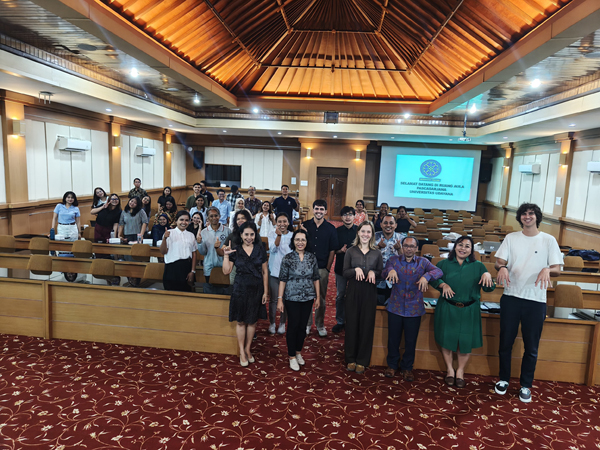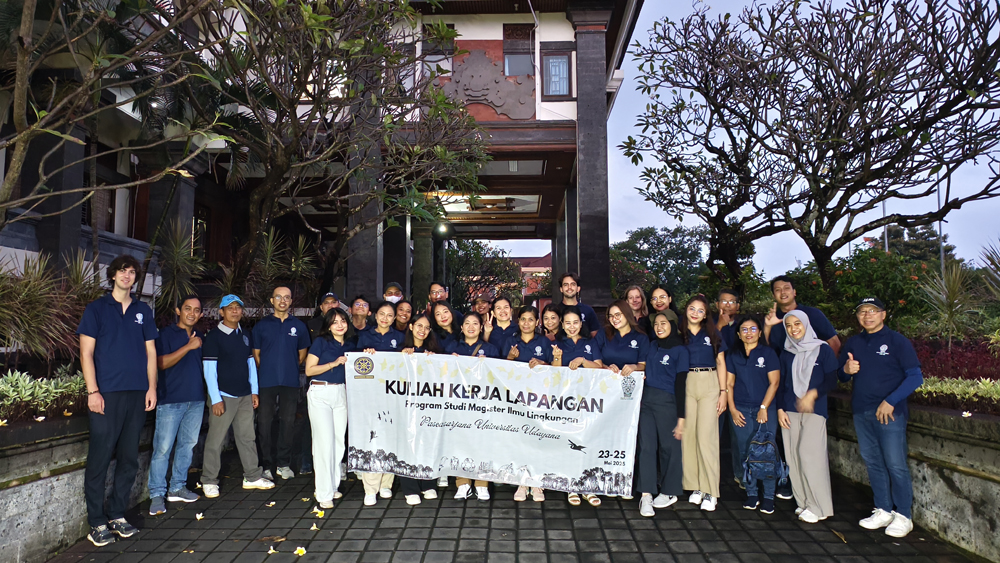PSMIL Pasca Unud Holds International Program on Tropical Ecology and Community-Based Conservation, March 2025 Period University General University General
Denpasar, Tuesday, March 11, 2025: Udayana University Postgraduate Master of Environmental Science Study Program (PSMIL Pasca Unud) held the Opening Ceremony of the International Program “Tropical Ecology and Community-Based Conservation” for the March 2025 period in the Session Room of the Udayana University Postgraduate Building. This program is a collaboration between PSMIL Pasca Unud Lumen Media PTE. LTD, which has been running for the third time. This program aims to provide an in-depth understanding of tropical coastal ecology and community-based conservation. In addition, the second program includes a series of short courses with interesting themes, namely “Sport & Environment,” “Sustainable Development & Eco Tourism,” and “Mangrove Ecology,” which lasts for one semester.
The event was opened by the Coordinator of PSMIL Postgradue Unud Prof. Ir. Ida Ayu Astarini, MSc., PhD, who, in her speech, was very happy and thanked Upskill because PSMIL was chosen as a partner in this international program. The choice of Bali, especially PSMIL Pasca Unud as one of the cooperation partners, is due to its location at the center of the coral reef triangle, which has rich mangrove forests, coral reefs, as well as seagrass and seaweed beds, added Prof. Dayu. During this semester, students will learn about mangroves, seagrass and seaweed, coral and fish, community-based tourism, and the Indonesian language. From the topics covered in class, students will be taken on field trips to learn about the biodiversity of these key coastal ecosystems and visit community-based conservation projects. Learn more about how communities manage these ecosystems to meet conservation and tourism needs. Special focus will be given to the environmental impacts of coastal ecosystems and the effects of climate change. This is an excellent opportunity for students to gain basic knowledge & methodology in marine biology and science, which will provide an insight into the work of marine researchers and scientists, concluded Prof. Dayu in his speech.
The next activity was filled with introductions of students who this time came from Austria (1 person) and the Netherlands (2 people). After that, the lecturers also made introductions by mentioning their backgrounds and fields of knowledge, as well as the courses they would teach (DK).


UDAYANA UNIVERSITY